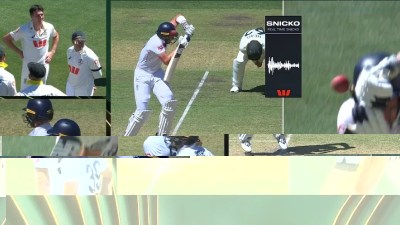Agreement to sell doesn’t transfer ownership rights or confer any title, rules SC
The ruling came on a plea where the question arose as to whether an agreement to sell a property entered into by parties in May 1990 had indeed been executed or not.
 The apex court added that “what is further noticeable is that the respondents received the full consideration and had also transferred the possession of the property in question”. (Express photo)
The apex court added that “what is further noticeable is that the respondents received the full consideration and had also transferred the possession of the property in question”. (Express photo) An agreement to sell does not confer any title or transfer ownership to the intended purchaser, the Supreme Court reiterated in a recent order.
The ruling came on a plea where the question arose as to whether an agreement to sell a property entered into by parties in May 1990 had indeed been executed or not.
“The agreement to sell is not a conveyance; it does not transfer ownership rights or confer any title,” a bench of Justices Vikram Nath and Rajesh Bindal said in its order earlier this month.
As per the case, the intended purchaser had agreed to buy a property from the proposed seller and also paid the full amount. The possession was also handed over to the purchaser. However, when the seller refused to execute it, the intended purchaser filed a suit for specific performance in October 2001.
The trial court dismissed the suit in September 2004 stating that the question of execution of the Agreement to Sell was doubtful.
The first appellate court reversed the decision of the trial court and said the intended purchaser had proved the execution of the Agreement to Sell.
On second appeal, the Karnataka High Court in 2010 ruled in favour of the intended seller stating that the agreement was in violation of the Karnataka Prevention of Fragmentation and Consolidation of Holdings Act, 1996, which prohibited registration of sale of fragments of a property unless it complied with the provisions of the Act.
The intended purchaser appealed before the Supreme Court, which noted that the issue of Fragmentation Act was never raised before the trial court by either of the parties.
Allowing the appeal, the top court said “There was no issue framed with respect to the violation of the Fragmentation Act, and it was not pleaded in the written statement filed by the respondent. The defence taken by the respondent was that he never executed the Agreement to Sell. However, in his deposition during the cross-examination, he admitted to his signatures on the Agreement to Sell. Thus, in the absence of any issue framed, and given that neither party has pleaded any violation of…the Fragmentation Act, the High Court apparently fell in error in holding that Agreement to Sell was in violation of Section 5 of the Fragmentation Act”.
The apex court added that “what is further noticeable is that the respondents received the full consideration and had also transferred the possession of the property in question.”







